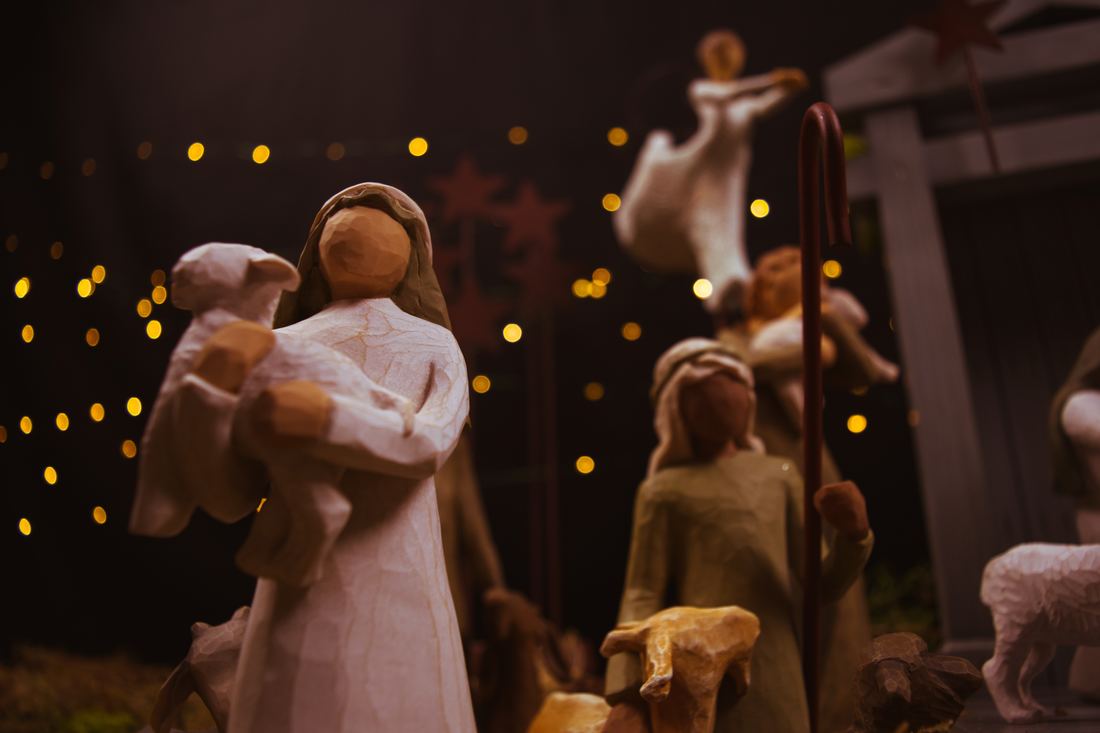|
Advent: Week 3
Coming Home: Guidance is a Season of Fury Read Matthew 2 Pastor Bruce wrote, “Sometimes our nostalgia conjures up vivid scenes of Advent and Christmas that could be lifted off a Hallmark card. “Silent night, holy night, all is calm, all is bright.” Perhaps for some of us, that is a blessing. But for the rest of humanity (and Jesus himself) the Christmas story takes place in a maelstrom of threats and rage. Even before he is born, Herod is out to take his life. After he is born, his family flees to Egypt and they become refugees. When they return, it is too dangerous to live in Judea, so Jesus winds up in Nazareth. Through it all, God’s provident love guides them, one step at a time. Even before they are aware of the threat, steps are bring taken to diffuse the threat of a tyrant. The Christmas story is a story of how God comes home to us when we are on the run, on the street, and out of luck. It’s a peace in the eye of a storm, serenity in a hostile environment, and divine presence mediated through the strangest people. 1. Read Matthew 2:1-12. Describe what’s happening in these verses. 2. Why were the wise men following the star? 3. Why was Herod, and all Jerusalem, troubled at the news of the wise men? 4. What did Herod ask the wise men to do and why? What was his real motive? 5. What did the wise men do when they found Jesus with Mary? Why? 6. Imagine all the wise men went through to find Jesus? What is it about Jesus that made their effort worth it? 7. Share your story of how you found Jesus? Was it easy or difficult? Did you ever consider turning back? Why didn’t you? 8. How would you describe Jesus to a friend who doesn’t know him? Would you paint a picture of someone worthy of worship?
0 Comments
Walking Points: Reflection Questions and Next Steps
Coming Home: The Yes of Obedience Luke 1:26-38 Pastor Bruce wrote, “Mary and Joseph are the very first human beings confronted with the reality of Jesus’ advent into our world. Into their world. Two things stand out in each experience. First, obedience is not just keeping the rules or following a code. It is – in essence – an intentional assent to the will of God. Obedience is saying yes to God’s will for e. Secondly obedience is action. It is something that we do; it is not only an interior disposition, but it leads me to specific steps. Note: this doesn’t mean we have all the answers. It doesn’t mean we know how it’s going to play out. May and Joseph were going on scant information that seemed impossible and likely made their heads swirl. Instead of certitude, they were left with trust. And trust makes a place for the Savior.” Below are some “Walking Points,” which are questions for reflection and next steps for you to consider taking during this Advent season and beyond. You can use them for your personal devotional time or with others in a small group. 1. When the angel appeared to Mary to tell her the news that she was chosen of God to be the mother of Jesus, Luke 1:29 says, “…she was greatly troubled at the saying, and tried to discern what sort of greeting this might be.” · What are two or three ways you discern God’s will for your life? Why are those good ways to discern God’s will? · If you are meeting in a group with others, share with them an experience in your life when you discerned God’s will for your life. Was it hard or easy? How did you go about it? · Eventually you had to step out in trust. Was that a scary time? Why or why not? What did you learn from the experience? 2. Read Luke 1:30-36. Talk about impossible! Now read verse 37. · How does knowing who God is enable you to better trust him during tough times. · What are some ways we can better know God? · List three attributes or characteristics of God that you cling to during tough decisions in your life. Why did you choose those three? 3. Now read Luke 1:38. · Spend some time praying privately, or together in your group, for the Lord to fill you with his Spirit to enable you to discern and respond to God’s call in your life, as Mary did. Walking Points: Reflection Questions and Next Steps
Coming Home: Receiving Jesus John 1:9-13 Our pastor is preaching an Advent series through December entitled, “Coming Home.” He writes, “We often look at this season through the lens of nostalgia. The tug of our memories is almost irresistible. We long to go back “home” to the holidays of our past. "But the message of the Scriptures is not that “we” journey back to some favored place in our memory. Rather, it is the startling news that God is making his home among us. We are left with some questions, “Will we receive him? How do we receive him?” Below are some “Walking Points,” which are questions for reflection and next steps for you to consider taking during this Advent season and beyond. You can use them for your personal devotional time or with others in a small group. John 1:9–13 (ESV) 9 The true light, which gives light to everyone, was coming into the world. 10 He was in the world, and the world was made through him, yet the world did not know him. 11 He came to his own, and his own people did not receive him. 12 But to all who did receive him, who believed in his name, he gave the right to become children of God, 13 who were born, not of blood nor of the will of the flesh nor of the will of man, but of God. 1. In verse 9, the Apostle John refers to Jesus as the “true light” (see also John 8:12). · What does John mean by that? · What does light do? · What do you think it means that the “true light gives light to everyone.” · In what ways do we get light from Jesus? · Share some examples of how Jesus lights your life (Ephesians 5:8; 1 John 2:8-10). 2. Not only did Jesus, as the Son of God, come to the world, but he came to world he made (v. 10). · What are two or three things we learn about Jesus from those two truths in verse 10? · To think that the Creator of heaven and earth took human flesh and walked among us is astonishing. What emotions do you experience as you reflect on that? Why? 3. The last part of verse 10 says the world did not know Jesus when he came. Verse 11 goes further by declaring Jesus came to his own people and they did not receive him. · What are some reasons people do not recognize and receive Jesus today? · What are some reasons you have recognized who Jesus is and have received him into your life as Lord and Savior? · How would you share God’s story of good news with a friend who has not yet “received Jesus?” · How would you incorporate your story into that larger story? (If you are doing these questions in a small group, share with the others how you came to know Christ as Lord and Savior.) 4. What does John say it means to “receive” Jesus, according to verse 12? · Does he mean only intellectual ascent? If not, what are the biblical components of faith in Jesus? · What are the benefits of receiving Jesus (v. 12)? 5. Being a child of God, biblically speaking, isn’t something you are simply by being alive. It’s not a condition that is the result of a natural process. Instead, it’s the result of a supernatural work (John 3:1-15; Eph. 2:8-9). · Compare and contrast what it means for a person to have their identity formed and shaped by who world says they are versus who God says they are as his child. · What does it mean for you to know you are a child of God? What difference does that make in how you think, speak, and live your life? · How would you share that with a friend or family member who seems to be seeking their identity in all the wrong places? 6. Write down the name of one person you would like to share your thoughts and experiences with, based on what you discussed in these questions. Begin to pray for that person now and for God to provide you with an opportunity to talk about Christ, and the difference he’s made in your life, with them. |
Click the images above to learn more about my books for men.
Archives
April 2019
Categories
All
|





 RSS Feed
RSS Feed
